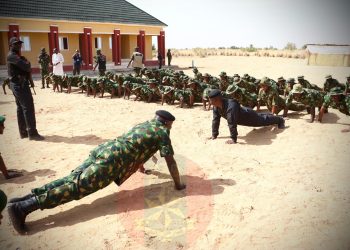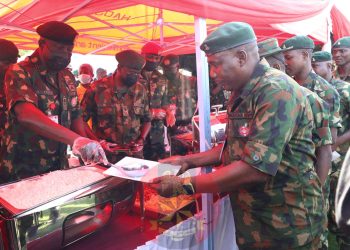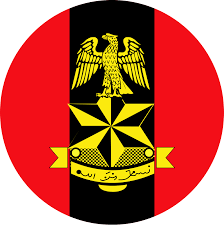By Nkechi Eze
The Chief of the Air Staff (CAS), Air Marshal Hasan Bala Abubakar, has urged future commanders of the Armed Forces of Nigeria to lead by example, serve with courage, and manage with prudence, describing these values as the foundation of effective leadership and institutional transformation.
Air Marshal Abubakar gave the charge on 10 October 2025 while delivering a lecture titled “From Vision to Reality: Strategic Leadership Insights from the CAS Command Philosophy” to students of both the Senior and Junior Staff Courses at the Armed Forces Command and Staff College (AFCSC), Jaji.
According to an official statement signed by the Director of Public Relations and Information, Nigerian Air Force (NAF), Air Commodore Ehimen Ejodame, the CAS also emphasized the importance of mentorship in military leadership. He described mentorship as the bridge between experience and potential, ensuring the transfer of institutional knowledge, professional ethos, and leadership wisdom to sustain operational excellence and continuity.
Addressing the officers, the Air Chief declared that “everything rises and falls on leadership,” stressing that the quality of leadership at every echelon of command determines morale, discipline, and combat effectiveness within the Force. He explained that the transformation witnessed in the Nigerian Air Force under his stewardship was guided by a leadership philosophy anchored on five strategic enablers — optimising force structure, mission-oriented training, proactive logistics and maintenance, prioritising research and development, and sustaining a highly motivated force through welfare and infrastructural renewal.
“These enablers, driven by leadership by example, courage, and prudence, have strengthened the Service’s agility, resilience, and responsiveness in operations across all theatres,” he stated. The CAS noted that his command philosophy was not born out of chance but deliberate vision and commitment to building a capable and future-ready Air Force.
Highlighting the principle of leadership by example, Air Marshal Abubakar disclosed that he had undertaken over 40 operational visits covering 98 out of 99 NAF units nationwide within two years. “These visits were not ceremonial but deliberate acts of leadership presence designed to inspire troops and reinforce accountability. Leadership is about presence, not proximity,” he remarked, adding that such engagements have boosted morale and confidence across formations.
He further underscored courage as an indispensable quality of command, citing the 2023 Rukubi incident in Nasarawa State as an example of moral courage in leadership. Rather than deflect blame, he said he chose to confront the issue directly by visiting the victims and instituting reforms that led to the creation of the Civilian Harm Mitigation and Response Action Plan — a framework that has since earned international commendation and contributed to the lifting of arms sale restrictions by the United States.
Under his leadership, the Nigerian Air Force has achieved remarkable operational gains, including the acquisition of 15 new aircraft and the expected delivery of 46 more in the coming years. The Service has also recorded over 3,000 sorties as of September and increased aircraft serviceability from 66 to 70 percent. These achievements, the CAS noted, reflect the courage to reform, the leadership to inspire, and the prudence to manage resources efficiently.
Air Marshal Abubakar further highlighted ongoing structural reforms, including the establishment of new branches such as the Transformation and Innovation Branch, the Directorate of Aircraft Life Cycle Management, and the Directorate of Peace Support Operations, aimed at institutionalising efficiency, safety, and sustainability within the Air Force.
Charging the officers to embody courage, integrity, and selfless service as hallmarks of command, the CAS said, “The true leader plants a tree whose shade he may never sit under, but under which others will find rest.” He urged the students to translate vision into reality through exemplary conduct and prudent management, adding, “If you hold fast to these ideals, history will remember you not merely as officers who served, but as leaders who transformed.”
The lecture was followed by a lively interactive session between the CAS and the officers, featuring candid discussions, clarification of key leadership concepts, and exchange of practical insights essential for effective command and professional development.
















